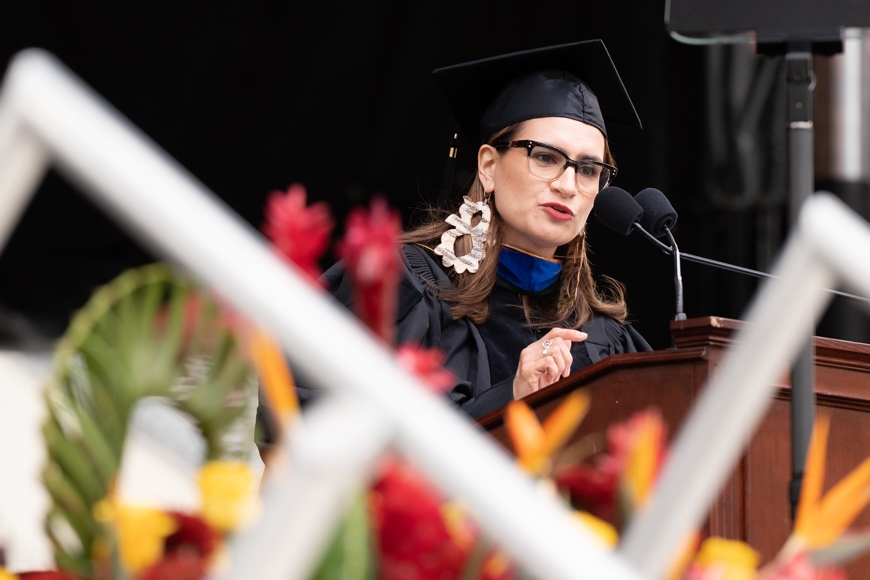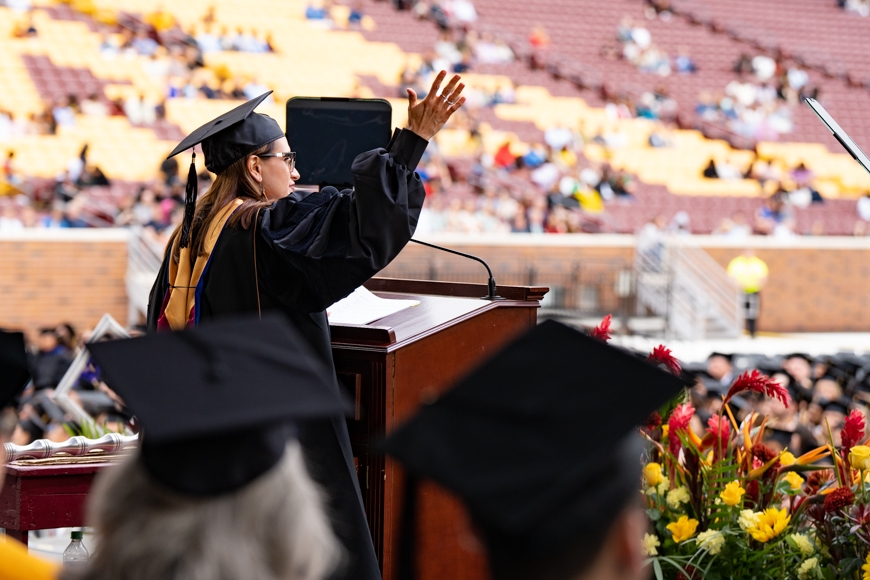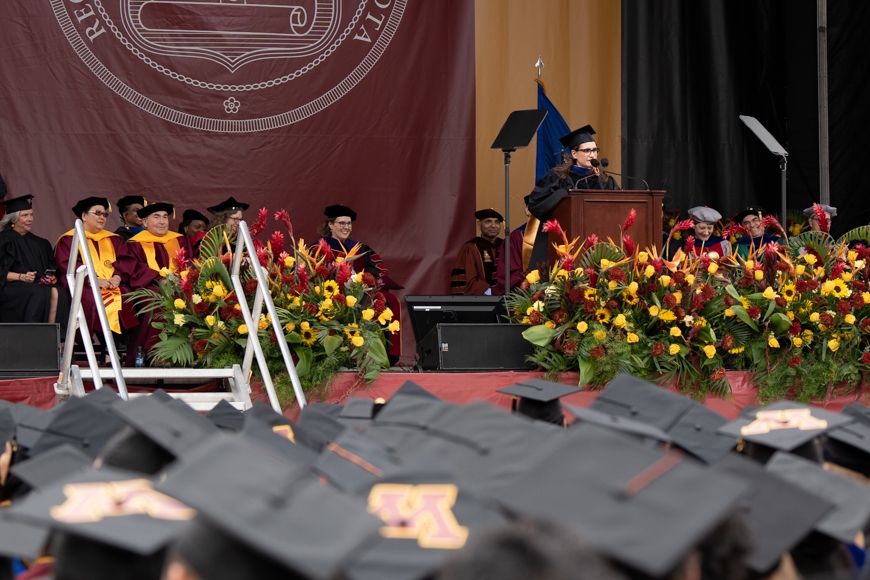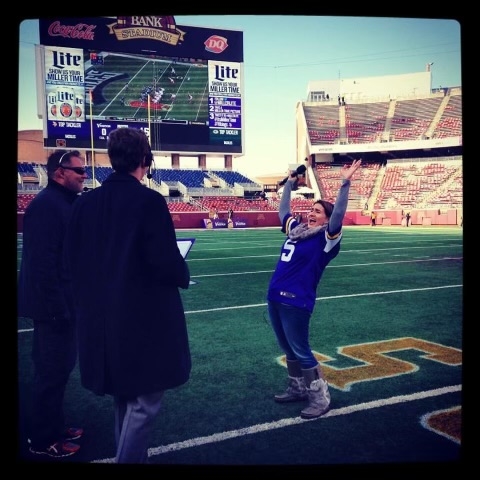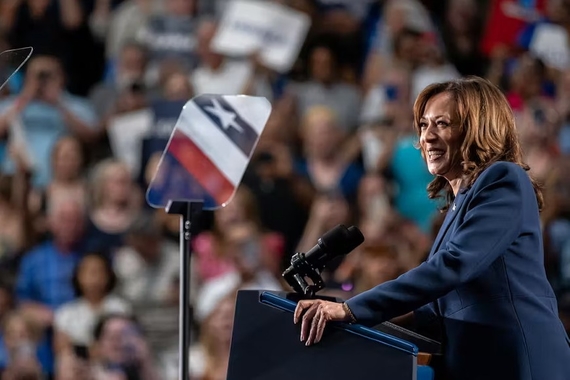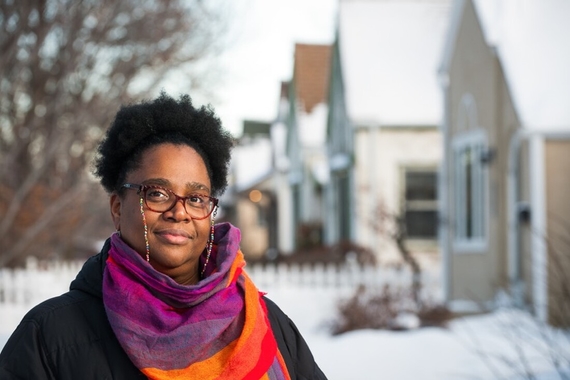Lieutenant Governor Peggy Flanagan Uses Her CLA Degree “Every Single Day”
When Lieutenant Governor Peggy Flanagan graduated from the University of Minnesota in 2002 with a bachelor’s degree in child psychology and a minor in American Indian studies, people asked her what she would possibly do with her degree.
But it’s never been hard for Flanagan to answer that question. Especially in her current role as lieutenant governor, where children, families, and underrepresented groups, including Indigenous communities, are at the heart of her legislative priorities.
“I use my degree every single day,” she says.
Rooted in research
It’s easy to see the throughline between Flanagan's degree and her work as Minnesota’s 50th lieutenant governor. Some of her recent accomplishments include establishing the Missing and Murdered Indigenous Relatives Office (the nation’s first), mandating tribal consultation for state affairs, making child care more affordable, and supporting families through the Minnesota Family Investment Program, which helps low-income families reach financial stability.
“The foundation I received from American Indian studies and child development absolutely informs the work I do for Indigenous communities, children, and families,” she says.
Flanagan was elected lieutenant governor in 2018 after serving two terms as a state legislator representing her home community of St. Louis Park. She decided to run for the legislature while working as the executive director for the Children's Defense Fund Minnesota, where she helped advance a bill to raise the minimum wage. Her commitment to that initiative was directly rooted in research and knowledge from her education in child development in the Institute of Child Development and the Department of Psychology.
“You increase family income, you improve child outcomes,” she says. “It was incredibly helpful to have research and data to move that proposal forward. So much of our work in the Walz-Flanagan administration is grounded in research—some of which comes directly from the University of Minnesota.”
Flanagan credits the College of Liberal Arts with helping her hone important skills in critical thinking, research methods, applied problem-solving, candid conversations, and developing her voice. And her liberal arts education introduced her to experiences and perspectives that differed from her background—which is key to her ability to represent an entire state of constituents.
A safe and empowering space
Flanagan is a member of the White Earth Band of Ojibwe and is currently the country’s highest-ranking Native woman in an executive office. She links this achievement to her years at UMN and the community and mentorship she found on campus, especially through the Department of American Indian Studies.
However, Flanagan’s educational career did not begin at the University of Minnesota. She originally enrolled in another local institution, but when she saw and experienced racist incidents targeting Native people she decided to leave the school.
“I wanted a safer place as a young Native woman,” she says. She transferred to UMN and one of the first things she did was enroll in Introduction to American Indian Studies. “It was a total game-changer.”
That class immediately connected her with an Indigenous community and offered her the safe space she’d been missing. She felt like she was being educated as a whole person, which allowed her to thrive in life and school.
“It was my home base, my community, and the safe place that I could keep coming back to while I was at the U,” she says.
That first American Indian studies class was taught by Brenda Child, Northrop Professor of American Studies and member of the Red Lake Ojibwe tribe. Child was the first Native woman Flanagan had seen in a leadership role and it was a pivotal experience.
“It was so empowering to see a Native woman at the front of the classroom, talking about our culture, history, and identity,” she says. “When you see yourself reflected in your curriculum and in the instructor at the front of the classroom, everything changes.”
Child helped her appreciate her intelligence and potential, says Flanagan, which helped her get to where she is today.
"I remember so well the day that a new undergraduate walked into my Scott Hall office and introduced herself as Peggy Flanagan. We began a conversation that day that we have continued over the years,” says Child. “Though she was not yet thinking of a political future, I could already see her commitment to having a meaningful life and career—like so many of our CLA students.”
That same term, Flanagan also took a course in child psychology. It was the first class she took at UMN—and she immediately knew she was in the right place.
“It was everything I wanted to know and learn about,” she says, adding that the combination of child psychology and American Indian studies became the obvious choice for her degree.
“It’s who I am and what I wanted to study.”
Choosing her path
Flanagan didn't attend the U with the intention of one day running for office, but it was here that she came to realize that she could use her education to help her community. She volunteered for the late US Senator Paul Wellstone during her senior year, helping with his outreach efforts to urban Native populations. And Child helped connect Flanagan with a job at the Division of Indian Work, where she ran programs to help Native families bridge the gap between home and school. This work, she says, was the best use of her degree and informed her entire career trajectory.
“The University of Minnesota is where I realized there was an opportunity to use my education to give back to the community and do right by people—and that is the path I chose,” she says.
Commencement address
Watch Lieutenant Governor Peggy Flanagan speak at the May '23 graduate commencement ceremony. Her remarks begin at 43:48.
